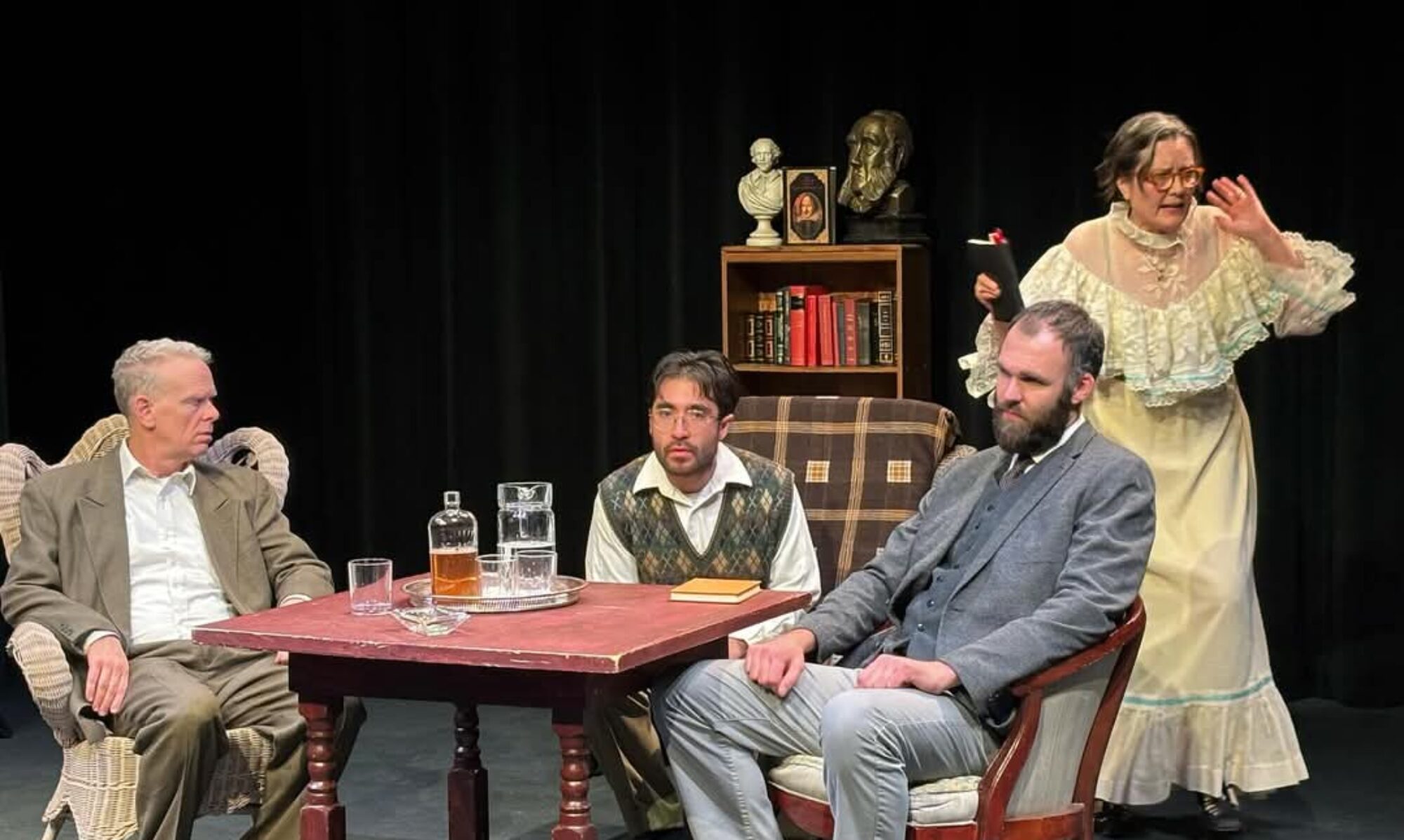The summer of 1981: We were planning our second season. We were pretty bushy tailed then and flushed with success: We had done a season of classical plays and we had turned a profit. We knew we were an ensemble, and a classical ensemble, but we wanted to be more. We wanted to be a repertory company as well. That meant we would return to the same plays from time to time: certain plays, the greatest plays, would be in our permanent repertoire. The Importance of Being Earnest was a great sucess in our first season so we would do it again. In repertory with—with what play? What would be the perfect companion to alternate performance nights with Earnest? There have been famous pairings of plays done that way: Shakespeare’s Antony and Cleopatra alternating with Shaw’s Caesar and Cleopatra; Hamlet and Rosencrantz and Guildenstern are Dead. The Colorado Shakespeare Festival this summer is doing Henry V and its sort of sequel, Henry VI, Part I.

So, what did we choose? Is there a play that shares characters with Earnest the way those above share characters? No. Is there a play that is somehow thematically related, whose pairing with Earnest will reward an audience by comparing and contrasting the treatment of similar themes? Well, Earnest is about how the infant Earnest Worthing was mistakenly placed in a handbag that was lost at a railway station, and who was brought up by foster parents and ultimately learned who his real parents were and got married to live happily ever after. Well, there is another famous play about an infant abandoned by his parents who grows up and learns who they were and . . . and is already married, it turns out, to his mother and she hangs herself and he blinds himself and lives in exile ever after.
So you see, Earnest and Oedipus Rex are simply two versions of the same story.

And, of course, I’m just making this up on the spur of the moment, as I go along. I have no idea, now, 34 years later, why we thought those two plays belonged together as a double bill. I think—and I may be making this up too—that we just wanted to do Oedipus, but were afraid of it. We thought a Greek tragedy, perhaps the darkest of all the Greek tragedies, was simply not up to the taste of a modern audience, and, by pairing it with our most successful comedy we would at least break even on the combination. Or maybe we just wanted to do Earnest again; we had a wonderful time with it, but were afraid that doing it again so soon might not draw our audience back so we would hedge by combining it with quite a different, but excellent, play that would bring in our existing audience and a new audience. Whatever.

Anyway, it’s really hard, in your second season, to say you are a repertory company unless you simply repeat the first season more or less forever. We repeated Earnest but we picked five more plays that we had not already done (It was only our second season.): Oedipus, Federico Garcia-Lorca’s Blood Wedding, Albert Camus’ Caligula, George Bernard Shaw’s Arms and the Man, and William Shakespeare’s: The Winter’s Tale. Now, except for Caligula, we’ve done all these plays again. We did Earnest again in 1987 and in 2003. We did Oedipus again in 2001. We did Blood Wedding again last year. We did Arms and the Man again in 1988. We did The Winter’s Tale again in 2003.
Why? Why do a play again for an audience, pretty much the same audience, who saw our last production of that play? Actually we’ve only done that once: with Earnest. It was virtually the same production, with only a couple of the smallest roles played by different actors, but it was as much like an extension of the run of a production, as it was a new production of the same play. But when we did Oedipus again it was hardly the same play. Yes the script and the music were the same but that was about it. The first production had a cast of eight speaking roles and a chorus of eleven singers and dancers. Nobody doubled in more than one role.

But our second Oedipus had a total cast of eight. Eight actors entered. One of them was wearing a headdress that was almost a mask and a royal robe. He was Oedipus and he spoke the opening speech to the chorus: the rest of the cast. At the end of the speech one member of the chorus went upstage to a costume rack, put on the headdress and robe of a priestess and continued the scene. Then Creon entered. That is, the priestess took off her priestess mask and robe and rejoined the chorus. Another actor—another member of the chorus—put on the mask and robe of Creon and played the next scene as that character. And so for the rest of the play.
And so it is with every repeat of a script. Different actors, usually a different director, always different mounting. But suppose they were much the same (as with our Earnest). If you liked it the first time you’ll like it again. How many times have you seen The Nutcraker? Or A Christmas Carol? Has anyone ever said “Why should I go to the concert? They’re doing Beethoven’s Ninth and I’ve already heard it.” Or “I’m not going to the Louvre. I’ve already seen the Mona Lisa.”

